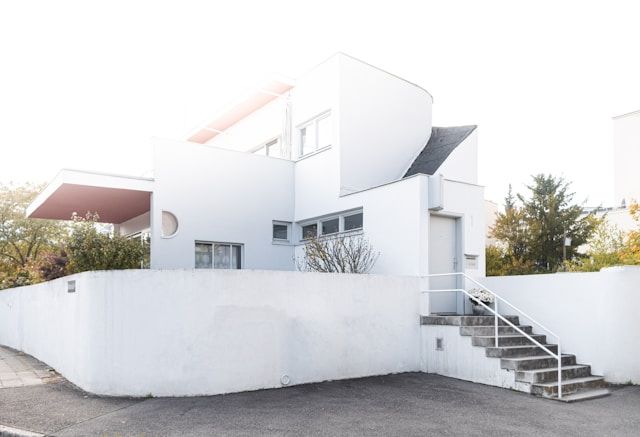Back
The Complete Wisconsin Airbnb Host Lodging Tax Guide: Airbnb Wisconsin Occupancy Tax Breakdown
Navigate Wisconsin-specific lodging & occupancy taxes for Airbnb and VRBO rentals with our comprehensive guide for short-term rental owners.
April 30, 2025

Written by:
Jeremy Werden
April 30, 2025

⚡️
Reveal any property's Airbnb profitability
Welcoming guests to Wisconsin also comes with state and local lodging taxes. Whether you’re a new Airbnb host or scaling up your short-term rental business, understanding these taxes is crucial for compliance and peace of mind. Our guide breaks down what you need to collect, remit, and watch out for in 2025.
State-Wide Lodging and Occupancy Taxes in Wisconsin
Wisconsin short‐term rentals are subject to a 5% state sales tax on rooms for stays under 30 days. Most counties also have an additional 0.5% county sales tax. This brings the total baseline sales tax on an Airbnb stay to around 5.5% of the room charge. In the more Premier Resort Areas (special tourist zones), an extra 0.5% state “resort tax” applies on top of sales tax, bringing the total to 6%.
If your total taxable sales from short-term rentals exceed $2,000 in a calendar year, you must collect and remit this tax. If you earn less than $2,000, you’re exempt from collecting lodging taxes.
Does Airbnb or VRBO Collect and Remit Taxes in Wisconsin?
If you exclusively use platforms like Airbnb or Vrbo, you’re in luck, as these marketplaces are required by Wisconsin law to collect and remit all applicable state and local short-term rental taxes on your behalf. However, if you take direct bookings, you’re responsible for collecting and remitting any taxes not handled by the marketplace. You must register with the Wisconsin Department of Revenue and file state/county sales tax returns.
Hosts are notified that Airbnb/VRBO is handling tax remittance, so in most cases, the platform will charge guests the correct tax at checkout. However, it’s important to check in with your local authorities to confirm that the platform/s you are using is actually responsible for collecting and remitting your lodging taxes.
City and County-Specific Local Tax Requirements
Here’s a breakdown of the key counties and cities with unique lodging or occupancy taxes, including their rates and how these funds are used.
County Tax Rate
All counties within Wisconsin have a 0.5% County Tax Rate. The Waukesha and Winnebago counties are the only counties that do not impose a county tax, meaning there is no additional county-level tax in these areas, and only the statewide 5% tax applies.
In contrast, Milwaukee County is the only county with an additional 0.90% county tax, which was increased from 0.50% as of January 1, 2024. Milwaukee also adds a 3% Wisconsin Center Tax District for the purpose of acquiring and managing exposition center facilities.
The City of Milwaukee adds a 2% city tax, regardless of what county it’s located in. Similar to Milwaukee County, Milwaukee City also has a Wisconsin Center Tax District that adds 7% on top of the 3% county tax, bringing the total to 10%. This 10% tax applies to all rentals made within the City of Milwaukee, regardless of what county it’s located in.
It can be a little hard for hosts to calculate the required lodging taxes because Milwaukee City is located in three different counties, with different tax rates. Here’s a breakdown of the taxes Milwaukee City rentals have to consider, depending on the county:
- Milwaukee City in Milwaukee County: 5% Wisconsin State Tax, 2% City Tax, 0.90% County Tax, 10% Wisconsin Center Tax District
- Milwaukee City in Washington County: 5% Wisconsin State Tax, 2% City Tax, 0.50% County Tax, 10% Wisconsin Center Tax District
- Milwaukee City in Waukesha County: 5% Wisconsin State Tax, 2% City Tax, no County Tax, 10% Wisconsin Center Tax District
Premier Resort Tax
The Premier Resort Area Tax is a local sales tax applied in select Wisconsin municipalities that rely heavily on tourism. The Village of Lake Delton and the City of Wisconsin Dells impose the highest rate at 1.25%, reflecting their status as major tourist destinations. The rest of the municipalities, Ephraim, Sister Bay, Rhinelander, Stockholm, Eagle River, and Bayfield, impose the tax at a rate of 0.5%.
This tax is assessed on sales by certain tourism-related retailers and is used primarily to fund infrastructure expenses in these communities, helping to offset the costs that tourism places on local resources.
Example Lodging Tax Calculation For a Property in Milwaukee City in Milwaukee County:
A 5-night stay at $250 per night.
- Total nightly Rate: $250 x 5 = $1250
- Cleaning Fee: $120
- Total Listing Price for a 5-night stay: ($250 × 5) + $120 = $1370
- Wisconsin State Tax (5%): $1370 x 0.05 = $68.5
- Milwaukee City Tax (2%): $1370 x 0.02 = $27.4
- Milwaukee County Tax (0.90%): $1370 x 0.009 = $12.33
- Wisconsin Center Tax District (10%): $1370 x 0.1 = $137
- Total Tax Collected (17.90%): $245.23
- Total Guest Payment: $1370 + $245.23= $1615.23
Wrapping Things Up
Staying compliant with Wisconsin’s lodging and occupancy taxes ensures your Airbnb business runs smoothly and helps fund the vibrant communities your guests come to enjoy. Always double-check with your local government for the most current rates and requirements, especially as new taxes can be enacted or changed each year.
These tax ranges are meant for general information purposes. Local counties and even cities can have more specific rates that only apply to them. For this reason, we still highly recommend checking out the local STR regulations in your area or contacting local officials for more information.
Airbnb Tax Deduction Calculator
Paying too much in taxes? We have the perfect solution. Simulate an Airbnb home purchase below.
Purchase Price
$450K
Structure Value
70%
Apply Trump's Tax Cut (Bonus Depreciation)
Depreciation
$117,695
Interest
$21,600
Tax
$6,750
Year 1 Deduction
$146,045